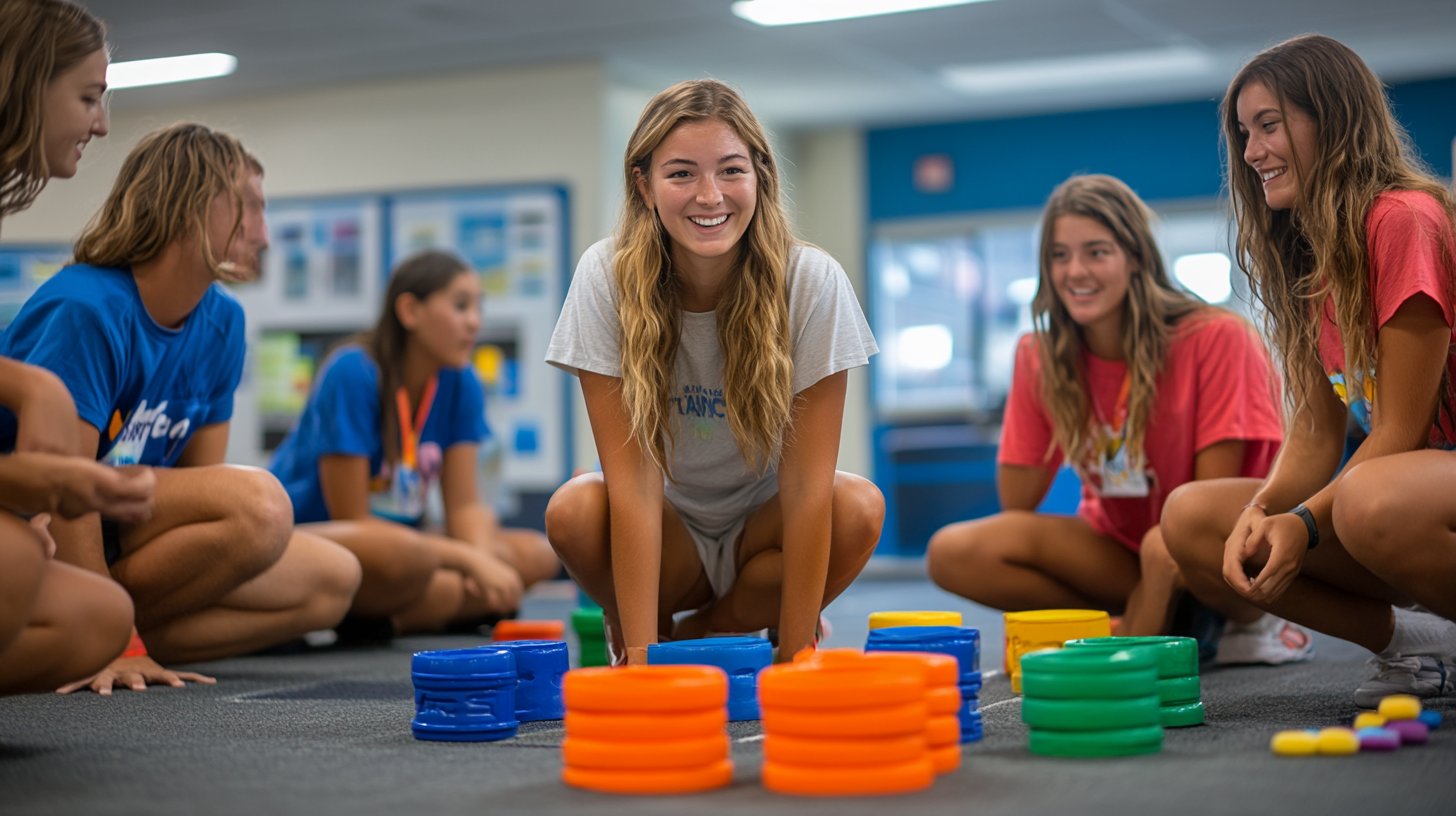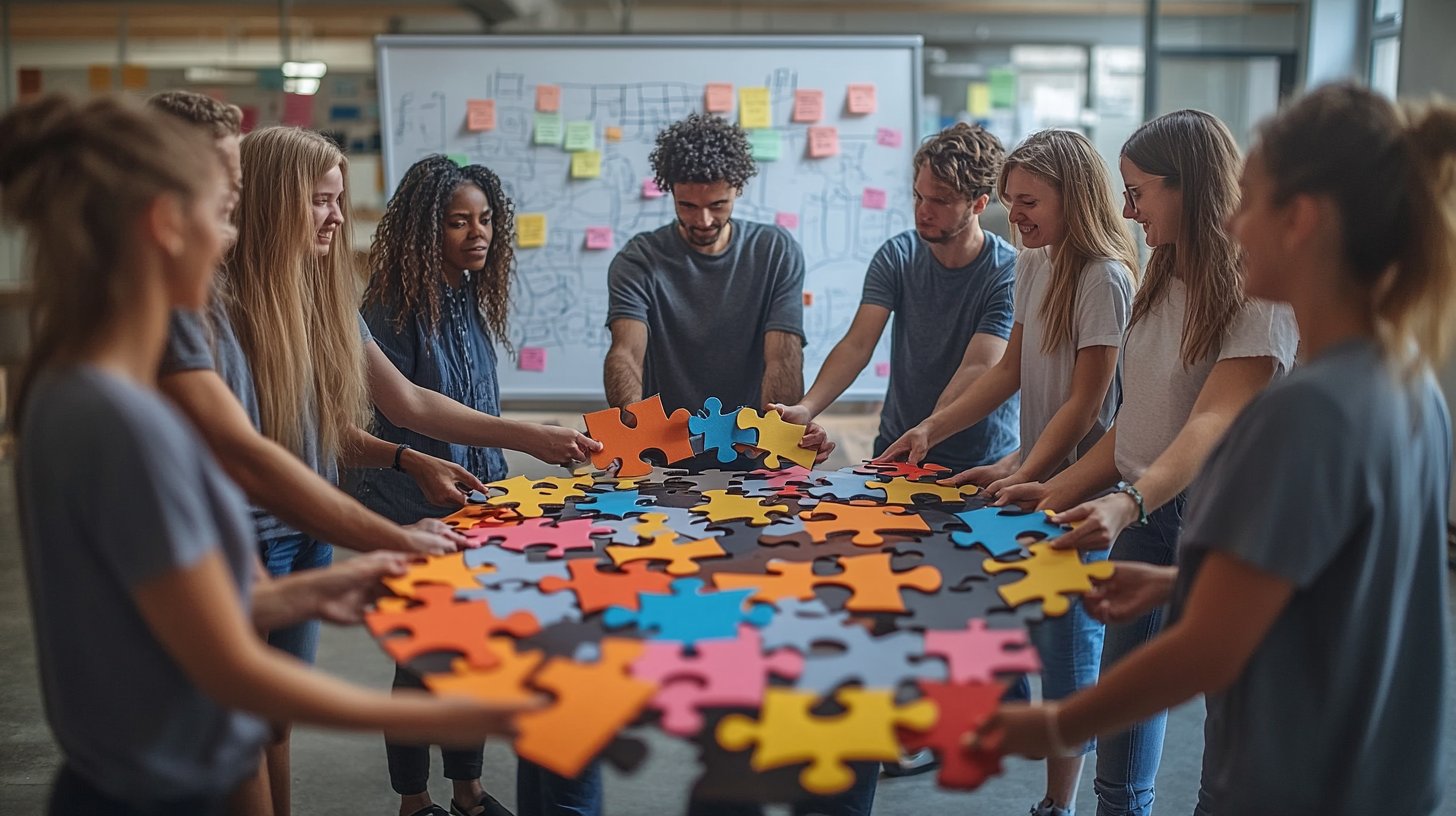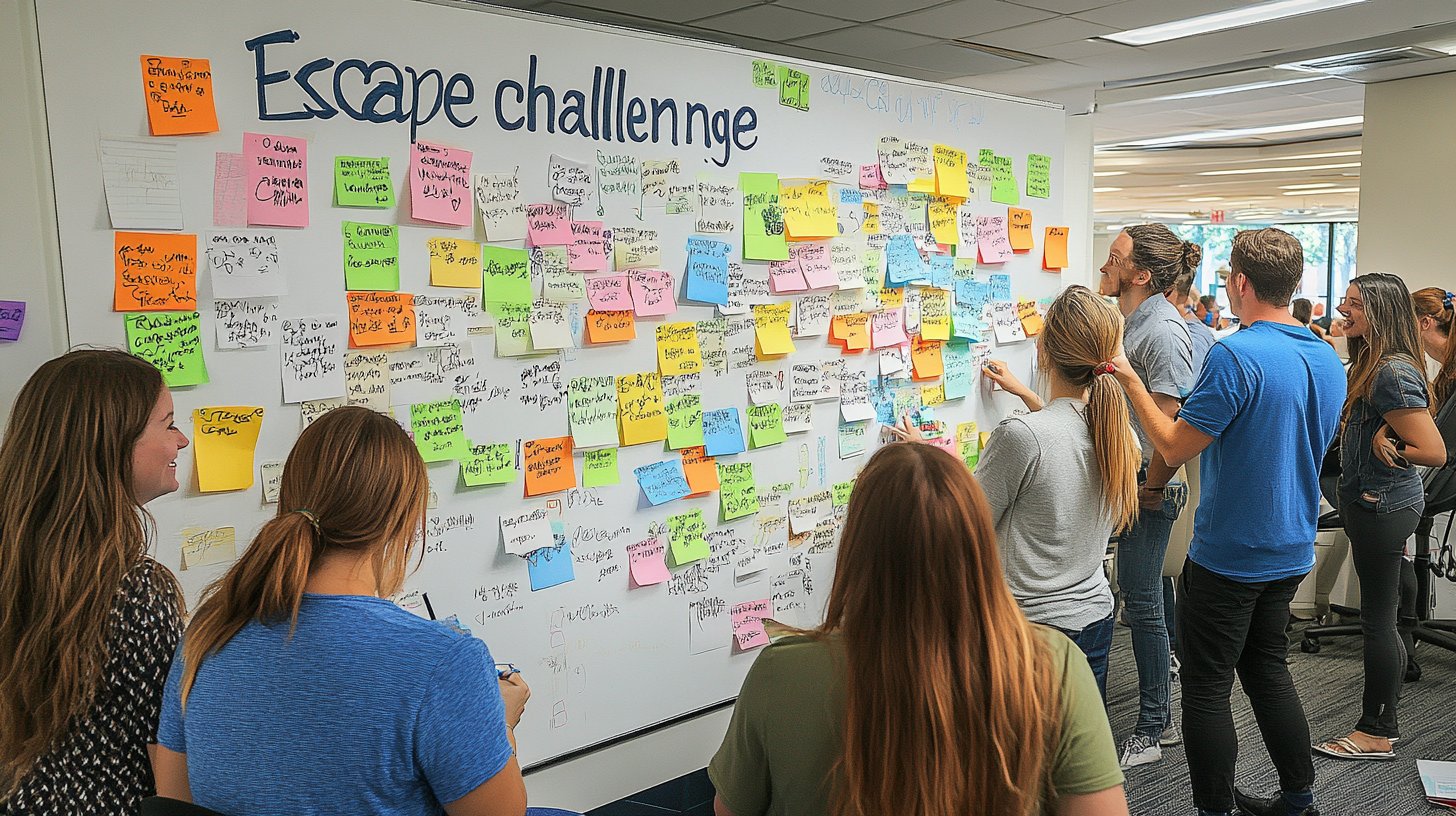Do you want to strengthen team cohesion and create authentic connections between colleagues? Are you looking for practical solutions to improve workplace atmosphere, boost motivation, and encourage daily collaboration? A team-building day could be the answer to your needs. Organizing a dedicated moment for sharing and learning offers both immediate and lasting benefits.
Teams face multiple challenges: lack of communication, tensions, or the need to energize collective spirit. You’re likely familiar with these issues. A well-planned day can overcome these obstacles through activities tailored to your team’s expectations. What activities should you choose? How can you meet diverse expectations? This guide will help you plan a unique experience and turn your goals into concrete results.
Communication as a Fundamental Pillar
Effective communication is the foundation of any team-building effort. In a team, every member should feel free to express their ideas and actively listen to others. Transparency and clarity in exchanges help avoid misunderstandings and strengthen trust among colleagues.
Regular meetings, both formal and informal, can improve team communication. Using digital collaboration tools to facilitate information sharing and task coordination is also highly beneficial.
Active Listening and Constructive Feedback
Active listening plays a key role in improving communication. It involves paying full attention to the speaker without interrupting, asking clarifying questions, and showing empathy. This skill enhances mutual understanding and helps resolve potential conflicts quickly.
Constructive feedback is equally crucial. Providing and receiving feedback openly encourages continuous improvement and helps team members feel valued. This boosts their well-being and motivation.
Trust: The Cement of Any Team Relationship
Without trust, it’s challenging for a team to function optimally. Trust allows members to feel safe when taking risks or sharing innovative ideas. It builds gradually through positive interactions and consistent actions.
Creating opportunities for each member to demonstrate their competence and goodwill increases overall team trust. Team-building activities focused on cooperation are particularly effective in strengthening mutual trust.
Transparency and Openness
Transparency in decisions and processes enhances trust. Sharing relevant information with all members and making collective decisions increase perceptions of fairness and involvement. It also reduces unnecessary rumors and tensions.
Openness means being receptive to new ideas and perspectives. Encouraging an environment where everyone feels free to express opinions without fear of judgment is integral to building trust.
Leadership and Positive Influence
Effective leadership is essential for guiding a team toward success. A charismatic leader inspires and motivates colleagues, creating a positive dynamic. Leadership also involves fostering innovation and creativity within the team.
Leaders should demonstrate empathy, understand their team members’ needs and concerns, and act accordingly. A coaching-based approach, rather than authoritarianism, promotes a constructive and participative work climate.
Participative Decision-Making and Empowerment
Involving team members in decision-making strengthens their sense of belonging and commitment. When they can co-decide, they feel more responsible for the outcomes. This improves both individual and team performance.
Empowerment means giving team members the autonomy to act independently while holding them accountable for their actions. This autonomy, encouraged by leaders, stimulates creativity and initiative.
Empathy and Workplace Well-Being
Empathy is a valuable quality in team building. Understanding and sharing others’ emotions create strong emotional bonds and foster a supportive team spirit. Team members feel more connected and ready to help one another tackle challenges.
Workplace well-being largely depends on the environment created by the team and its leaders. Pleasant working conditions, combined with simple gestures of recognition and support, significantly enhance overall employee satisfaction.
Well-Being Initiatives and Social Activities
Organizing social activities, like team lunches or group outings, strengthens personal bonds among members. This humanizes workplace relationships and helps everyone get to know each other better outside the strict professional context.
Well-being initiatives, such as meditation sessions, relaxation spaces, or even flexible schedules, show genuine concern for employees’ comfort and mental health. These actions generate a sense of recognition and help retain talent.
Creativity and Innovation in Service of the Team
Fostering creativity and innovation within a team opens the door to new solutions and improved work methods. A company culture that values these aspects accelerates progress and attracts inventive and dynamic minds.
Encouraging brainstorming sessions, creative workshops, and problem-solving sessions stimulates imagination and provides the tools to break free from traditional patterns. Continuous innovation then becomes a driver of collective performance.
Cultivating an Innovation-Friendly Environment
To cultivate an innovation-friendly environment, barriers to risk-taking must be removed. Embracing mistakes as learning opportunities unlocks the creative potential of teams. Leader support in this process is crucial.
Establishing innovation rituals, such as dedicated creative thinking days or idea contests, enriches company culture. These practices maintain engagement and energize team members’ initiative.
Team Spirit and Active Cooperation
Team spirit transcends individual contributions to create collective synergy. Each person brings unique skills, and their harmonious combination forms the strength of a high-performing team. Team building is designed specifically to cultivate this group spirit.
Active cooperation is necessary to achieve common goals. Working hand-in-hand, with altruism and shared responsibilities, optimizes efficiency and reduces individual workloads. Members better understand each other’s roles and how their efforts converge toward a shared objective.
Cooperative Games and Joint Projects
Cooperative team-building games develop essential interpersonal skills. Whether solving a puzzle as a team or participating in sports challenges, these experiences bring members closer and help integrate newcomers.
Working on joint projects, where each person has a specific but interdependent role, further strengthens this dynamic. The planning, execution, and review stages of these projects provide valuable opportunities to adjust and continually improve collaboration methods.
| Skill | Benefit for the Team |
|---|---|
| Communication | Improves transparency and reduces misunderstandings |
| Trust | Strengthens psychological safety and facilitates cooperation |
| Leadership | Guides and motivates the team toward shared goals |
| Empathy | Builds strong emotional connections and supports well-being |
| Creativity | Generates innovative ideas and improves work methods |
| Team Spirit | Optimizes synergy and collective performance |
Building a cohesive and high-performing team requires a diverse set of skills. Communication, trust, leadership, empathy, creativity, and team spirit each play a unique but complementary role. By cultivating these skills daily, organizations see not only performance gains but also significant improvements in member well-being. Investing in team building is not just wise—it’s a valuable strategic lever for any company aspiring to excellence.








